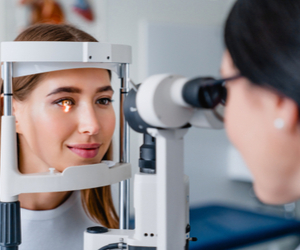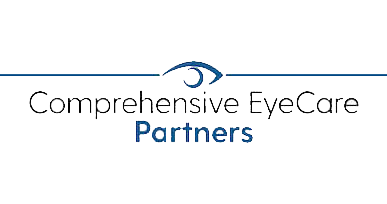Are you looking to reduce your dependence on glasses and contact lenses? If you’re a good candidate, you can get LASIK.
LASIK is a highly effective laser vision correction procedure that corrects nearsightedness, farsightedness, and astigmatism. The procedure is incredibly successful for most patients.
By correcting refractive errors, you can finally enjoy the sharper and clearer vision you’ve always wanted. Before you can have LASIK, you must schedule a LASIK consultation with your ophthalmologist.
A LASIK consultation is the only way to determine whether you’re a suitable candidate. Here are 9 signs you’ll qualify for LASIK and be a good candidate:

1. Your Eyes are Healthy
To have LASIK, you need to have healthy eyes, meaning you can’t have any pre-existing conditions like keratoconus, cataracts, or Sjogren’s syndrome.
These eye conditions can make it more challenging to have LASIK because they make it harder to recover safely. You also must not have active allergies or eye infections.
Uncontrolled and pre-existing conditions can impact the effectiveness of the vision correction procedure.
2. You’re in Good Health
In addition to healthy eyes, you’ll also need to be in good health. Even though LASIK is minimally invasive, it’s still surgery, and it affects the tissue in your eyes.
Healthy LASIK patients are likely to recover more quickly with fewer complications. It may compromise your recovery time and healing if you have a chronic condition or an autoimmune disease like diabetes, HIV, lupus, or rheumatoid arthritis.
Autoimmune diseases and chronic illnesses can also negatively affect having LASIK.

3. You’re in Your Mid to Late Twenties
While LASIK is technically FDA approved for those at least 18 years old, many LASIK surgeons recommend waiting to have the procedure until your mid to late twenties. Turning 18 doesn’t mean that your eyes will automatically stop developing and growing.
One of the most crucial factors for LASIK candidacy is making sure your prescription is stable. If your eyes continue developing and changing after you turn 18, the best thing you can do is wait to have LASIK.
Once you’re in your mid to late twenties, your eyes should be stable and will have stopped changing. If you know that your eyes are unlikely to fluctuate or alter in any way, that means that it’s the perfect time to think about getting LASIK.
4. Your Corneas are Thick Enough
Since LASIK reshapes your corneas, an essential factor considered during your LASIK consultation is the thickness of your corneas. During LASIK, your surgeon creates a flap in the cornea to reshape it and fix refractive errors.
Your surgeon needs to remove tissue from the cornea when they create the flap for you to get LASIK safely. It’s not a problem when your corneas are thick enough because you’ll have plenty of tissue left over after creating the flap.
But when you have thinner than normal corneas, it can become dangerous. If there isn’t sufficient corneal tissue left after creating the flap, your cornea will be too thin. A very thin cornea can cause vision problems and severe complications after having LASIK.
If you find out that you’re not a LASIK candidate, there are other alternative vision correction procedures that we offer at Evergreen Eye Center like PRK which may be a better fit for you. Make sure to ask your eye doctor about all your options at your LASIK consultation.
5. Stable Prescription
For the best results when undergoing LASIK, you need to have a stable prescription that remains unchanged for at least one year. Some LASIK surgeons require two years for a stable prescription before getting LASIK.
An unstable prescription can result in vision changes or complications after the procedure. Having a stable prescription means you’ll have little change in your eyesight down the road, ensuring permanent vision correction.
Though LASIK is an incredible way to correct your vision, it isn’t for everyone. If your refractive error is too high, LASIK may not be suitable for you.
Patients with prescriptions above the normal limits are more likely to develop complications. Also, the outcomes of LASIK will be less predictable. In these cases, your eye doctor may recommend a LASIK alternative like PRK or the ICL.

6. You Don’t Have Dry Eyes
It’s common to experience dry eyes following LASIK. Ninety-five percent of LASIK patients have symptoms of dry eyes.
In most cases, dry eyes usually last for a week, and the symptoms are not severe enough to disrupt daily activities. But this isn’t the case for patients who had dry eyes before LASIK.
Having dry eyes before undergoing laser eye surgery worsens after LASIK.
Most ophthalmologists screen their patients for dry eyes. If you have dry eyes, you’ll require treatment, and once it’s under control, you may be eligible for LASIK.
7. Your Pupils Are Not Too Large
If you have extremely large pupils, you’re more likely to experience side effects like seeing starbursts, halos, and glares—the risk of seeing these increases, particularly when driving at night. LASIK might not be the ideal vision correction procedure for you.

8. You’re Not Pregnant or Nursing
Pregnancy and nursing hormones can change the curvature and thickness of your cornea, affecting the stability of your vision. As you need to have stable, unchanged vision before getting LASIK, this is a problem.
To ensure you end up with results you’re happy with, consider waiting to have LASIK until you’re sure you will no longer have any more children. At the very least, wait to have LASIK for a minimum of three months after you’ve finished nursing.
Waiting for this period will help ensure that your vision has time to stabilize if it does change.
9. You Have Realistic Expectations
Despite LASIK having an impressive success rate, you should be completely aware of the potential risks, complications, and side effects before undergoing the procedure. There’s no way to guarantee the outcome of the vision correction surgery as everyone’s eyes heal differently.
If you don’t have realistic expectations around what LASIK can achieve, you may want to rethink having it. Attaining perfect vision is not practical, and there’s a chance you may still need glasses or contacts for reading small print and driving at night.
Begin Your Journey to Clearer Vision
Are you tired of the limitations that come with relying on contacts or glasses? LASIK can change your vision for the better.
Find out if you’re a good LASIK candidate by calling to schedule your LASIK evaluation at Evergreen Eye Center now!

